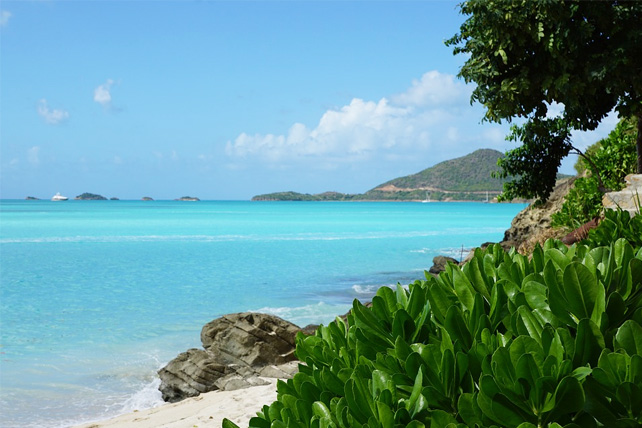Antigua and Barbuda is set to legalise the regulated production and supply of cannabis for religious and medical purposes, following consultations with Rastafarian communities.
The Cannabis Bill 2018 has two main functions: regulating the production, prescribing, and supply of medical cannabis for patients; and permitting Rastafarians (and other religious groups) to possess, cultivate, and supply cannabis – at quantities exceeding existing thresholds – for religious purposes. The bill stops short of legalising cannabis for recreational purposes.
Following a legal amendment passed in March 2018, all adults can now legally possess less than 15 grams of cannabis, and cultivate a maximum of four plants, for personal use.
The new bill allows "an adherent of a religious body, including, but not limited to, the Rastafarian faith … [to] register with the Authority to" cultivate over four cannabis plants, and possess or transport over 15 grams of cannabis, for religious purposes. It also allows such religious followers to “dispense cannabis solely for religious purposes as a sacrament in adherence to a religious practice of the religious body, at a sacramental dispensary”.
The bill is supported by Prime Minister Gaston Browne, who has publicly apologised for the brutal state discrimination against Rastafarian people found using cannabis. As TalkingDrugs reported in February, Browne recalled personally witnessing police using excessive force against Rastafarian people for alleged cannabis offences:
“[The police] were rampant. Just the smell of marijuana, they would literally go into people’s private homes and literally abuse them […] I recall a couple of times I see guys running, literally running from police officers even before they approached them because they knew the consequences. The consequences were not just prosecution. It was also brutalisation. I want to take this opportunity to apologise to the family members of those individuals for the abuse that would have taken place over the decades”.
To atone for the harms caused to the Rastafarian community, the government have strived to include adherents of the faith as stakeholders in the new bill’s legislative process.
Inclusive public consultations began in January, during which Rastafarians, community groups, NGOs, churches, and other organisations were invited to make provide feedback and suggestions on cannabis reform. Some Rastafarians expressed concern at the possession threshold limits introduced earlier this year.
“For the Rasta man and the Rasta family, [these thresholds are] a joke. We drink it, we eat it, we make oils and other things from it. I applaud the effort but we’re looking to see much more done. I still think the government needs to at least match the Jamaica bill. Anything less, we see as not acceptable. In Jamaica you’re allowed two ounces and for every working person in a household you’re allowed to grow five trees,” said Kiyode Erasto Straker of the Ras Freeman community, St. Lucia News reports.
Such feedback has evidently been take on board by legislators.
Having already successfully passed three readings in the House of Representatives, the bill is ready for its final debate prior to being passed in to law. However, Prime Minister Browne has decided to organise one final public consultation on the law – involving Rastafarians and medical professionals – on November 23.
“We invite the various stakeholders to come and give their views on the proposed marijuana bill and for us to make changes and to come back here within the next 10 days by which time we will have our final debate and to pass this Bill into an Act, the Cannabis Bill of 2018,” Browne declared.
Antigua and Barbuda will join many other countries in the Americas in legalising cannabis for medical purposes, including Argentina, Brazil, Colombia, Mexico, and Uruguay.
Read the Cannabis Bill 2018 in full here.


